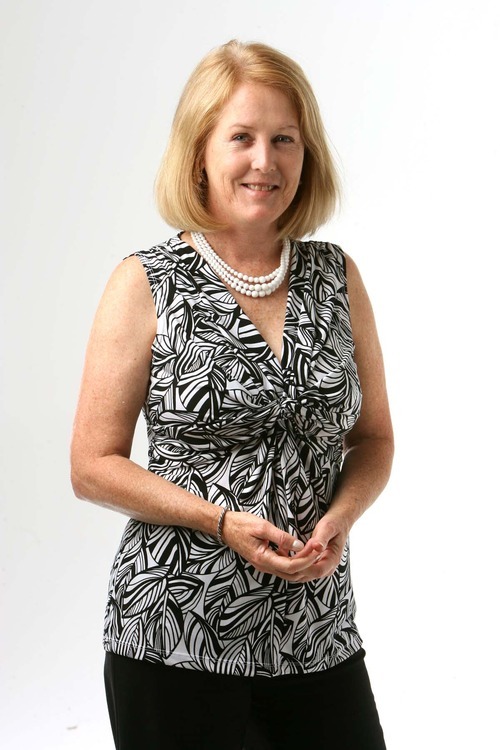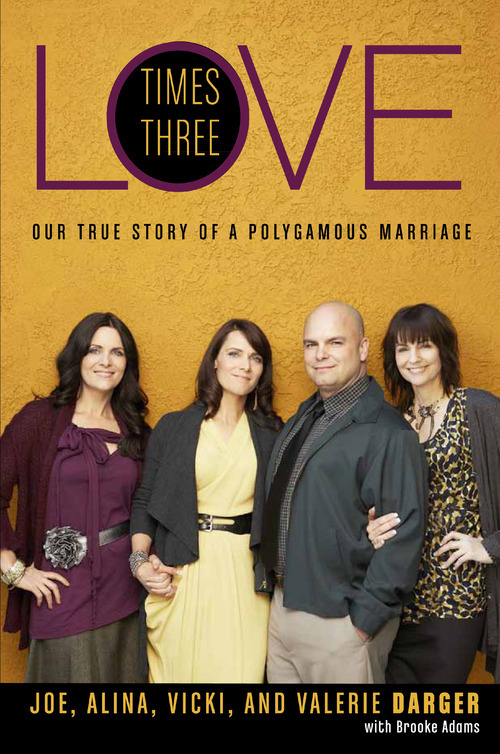This is an archived article that was published on sltrib.com in 2011, and information in the article may be outdated. It is provided only for personal research purposes and may not be reprinted.
Causes resemble one another in the sense that they give birth to naysayers who endeavor to rebrand them in alarmist terms. As those working to increase tolerance know, the naysayers can have plenty of ammunition.
Now, one Utah polygamist family (of a branch of Fundamentalist Mormons known as the Independents) has decided to boldly stand up for their beliefs. In writing their personal narrative, titled Love Times Three, the Dargers hope to change misconceptions about their lifestyle.
Unfortunately, not all causes are created equal.
Acceptance of non-mainstream relationships is, by all accounts, on the rise. When it comes to polygamy, however, few who aren't themselves part of the culture are likely to speak up on its behalf.
One reason — some might say the dominant stereotype — is the apparent inequality between the sexes. Sober arguments against plural marriage tend to home in on precisely that.
And yet, a shifting of attitudes toward the lifestyle is in the air.
That the pop-culture radar is attuned to polygamy is self-evident. What sits in the collective gut and nurtures the lay imagination, is a perplexing salad made of saucy doses of HBO's fictional drama "Big Love" and TLC's reality show "Sister Wives," of damning Warren Jeffs exposés, of raunchy Broadway-sized satire, and of homegrown ideas about the faith-based links to it all of a presidential candidate or two.
The focus is on gender politics, crime, theology and power. All grand components that have their place among considerations of plural marriage, to be sure, but ones that make for a falsely-grandiose prism through which to examine what happens on the one scale with which most people have actual experience: the family.
The commonplace aspects of familial life are precisely what comes into view in the Dargers' story. Their home, on the outskirts of a suburban Utah neighborhood, is where much of their life, as they choose to make it, takes place.
Co-authored by reporter Brooke Adams, who had covered polygamy for The Salt Lake Tribune for six years, the narrative is composed of interlaced first-person accounts of the four main members of the household — Joe and his wives Alina, Vicki and Valerie.
Adams first encountered the Dargers in 2006, as "Big Love," for which they were one of the inspirations, was making its first stand. It took a year, however, before they agreed to be interviewed for a newspaper story. "They were worried" about the repercussions, after years steeped in the culture's history of prosecution and persecution. The decision to collaborate on a book took several more years.
While the Dargers' express intention in Love Times Three is to demystify the polygamist lifestyle in the hopes of decriminalizing it, Adams points to the novelty of the undertaking. Never before, she says, have members of "a functioning, successful plural marriage" made the decision to open their lives to public scrutiny in this way.
"There have been a number of escape stories, showing the unhappy, disastrous, criminal side of what has happened in some of these groups," Adams says. "But this is a first. They're taking a lot of risk."
In recounting their domestic routines, their carefully honed relationships as spouses and sister wives, and their personal trials along the way, the Dargers impress upon the reader the sense that theirs is a mainstream life.
Yes, the fact that the family has 24 children necessitates an extra-carefully managed schedule. Yes, romantic intimacy has to conform to certain unconventional rules. Yes, jealousy and conflict ebb and flow.
And yes, life changing events, such as postpartum depression and the death of an infant, have profound consequences — not the least of which is an ostensibly unjustifiable investigation from Child Protective Services.
But the core assertion is that all of these components of family life are dealt with by consenting adults who have made a choice to live according to their religious principles. Adults whose successes and failures are no different than those of more conventional households.
"What I think is very illuminating is seeing how the relationships really work," Adams says. "I don't think they've held back."
Given the narrative, concerns about gender equality should perhaps simply be measured by the accounts presented therein.
The writer Stephen Crane, who knew a thing or two about the marginalized elements of society, observed that, born with eyes, people are not responsible for their vision, but merely for the quality of their personal honesty. These women, Adams concludes, chose this lifestyle and stay in it "because they enjoy it and find it supportive and helpful and fulfilling to them."
She adds: "They're a pretty grounded family. They will hold together through whatever comes."
'Love Times Three: Our true story of a polygamous marriage'
Joe, Alina, Vicki and Valerie Darger with Brooke Adams
Publisher • HarperOne
Pages • 291
Price • $26.99





